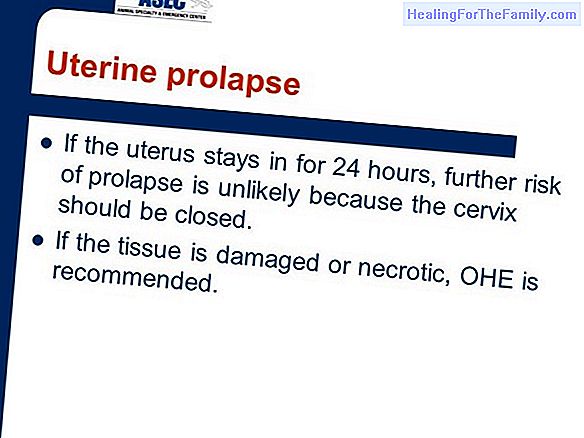Cancer in pregnancy can be treated with chemotherapy
A new door to hope opens up on the issue of cancer in pregnancy with the work published in the journal The Lancet . A team of researchers has found that chemotherapy in pregnancy does not harm the fetus, in a study that has investigated the development of 82 fetuses exposed to chemotherapy during th
A new door to hope opens up on the issue of cancer in pregnancy with the work published in the journal The Lancet. A team of researchers has found that chemotherapy in pregnancy does not harm the fetus, in a study that has investigated the development of 82 fetuses exposed to chemotherapy during their pregnancy.
The news can not be more positive, since many mothers affected by cancer in pregnancy had to debate between saving their life or that of their baby, a very painful tessitura. And is that when the cancer suddenly appears in the middle of a pregnancy, doctors advised the couple to cause a premature delivery to begin treatment to the mother with chemotherapy or radiotherapy. It is true that premature births have numerous risks for the baby, and that not starting cancer treatment early may also pose a serious risk to the mother's health.
Pregnant women can be treated without interrupting their pregnancy

Currently, the incidence of cancer in pregnancy increases at a rate of 2.5 percent per year and one in every 1,500 pregnancies is complicated by the appearance of cancer. Faced with this difficult situation, doctors used to make the decision to terminate the pregnancy ahead of delivery, but now this new study could facilitate decision-making by determining that chemotherapy and radiotherapy do not interfere with the development of the baby, when they are administered in the last two trimesters of pregnancy.
Therefore, premature births should be considered only for other reasons, since it has been found that the consequences of prenatal exposure to chemotherapy and radiotherapy are not different from those of the general population during the last months of gestation. Researchers say that between week 14 and up to three weeks before delivery(never after 35 due to the risk of the woman going into labor spontaneously) is a safe treatment for both.
Many studies that advance safe solutions on the drugs that are used for the treatment of some tumors, such as the taxanes that are prescribed for breast tumors, are still lacking. These issues are important because pregnancy physiologically alters a woman's body and this can affect the way drugs behave. While clinical trials are being conducted on these issues, collaboration between oncologists, obstetricians and paediatricians can improve the management of cancer in pregnancy.
Marisol New. Editor of Guiainfantil.com












